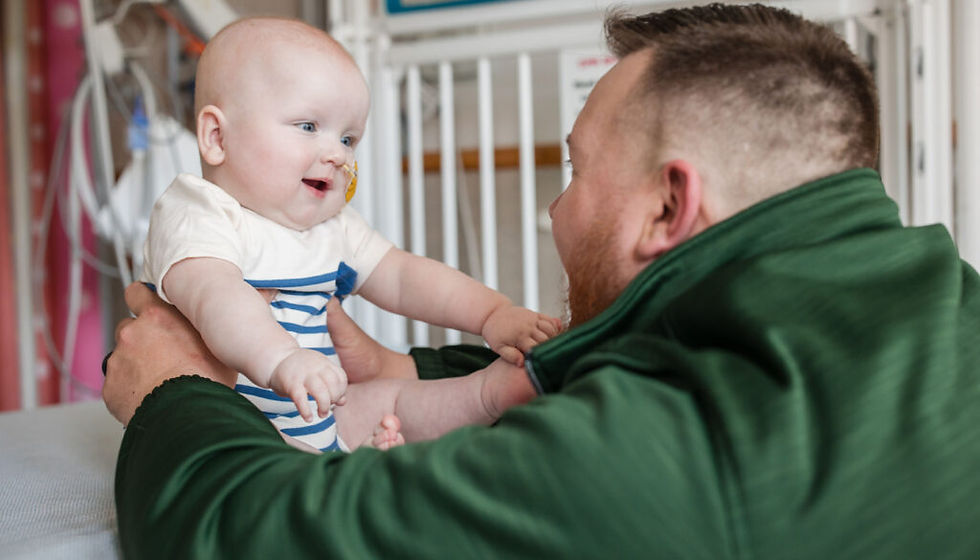CRISPR-Cas tech making personalised medicine a reality.
- Sebastien Bertin-Maghit
- May 16, 2025
- 2 min read

A groundbreaking case of personalised medicine using the infamous "molecular scissors" offers hope for treating rare genetic diseases thanks to in vivo gene editing.
In a remarkable feat of medical innovation, clinicians and researchers from the Children's Hospital of Philadelphia and the University of Pennsylvania have successfully used customised gene-editing therapy to treat a neonate diagnosed with severe carbamoyl-phosphate synthetase 1 (CPS1) deficiency, a life-threatening metabolic disorder. CPS1 deficiency affects the urea cycle, leading to a buildup of toxic ammonia in the blood. This condition has a high mortality rate in early infancy; around 50%.
Faced with this urgent situation, researchers developed a customized base-editing therapy delivered via lipid nanoparticles. The therapy, named "k-abe," was designed to correct the specific genetic mutations causing the infant's condition. The treatment was developed within 6 months, including the preclinical studies, benefiting from a rapid regulatory approval.
After identifying the precise mutations, the gene editing platform was designed and tested in cell lines and animal models. The therapy was then manufacture in clinical grade and injected to the young patient after approval by the FDA.
Lipid nanoparticles delivery was chosen over virus-based delivery methods to limit immune reactions. Although the follow-up period is still short and needs to be prolongated, the young patient seems to tolerate the treatment well with few manageable side effects.
This case demonstrates the potential of personalised gene-editing therapies to treat rare and ultra-rare genetic diseases. While longer follow-up is necessary to assess the long-term safety and efficacy of the treatment, this success story marks a significant step forward in genetic medicine. It paves the way for developing similar customised therapies for other genetic conditions, offering new hope to patients with limited treatment options.
In addition, this case shows us that science and technology advances are the fuels for innovation in health. Join us in CSII Health & Wellbeing spcialisation to better understand medical innovations and learn how science and tech/biotech can benefit human health.
**Reference**
Musunuru, K., Grandinette, S.A., Wang, X. et al. Patient-Specific In Vivo Gene Editing to Treat a Rare Genetic Disease. N Engl J Med. DOI: 10.1056/NEJMoa2504747
Dr Sebastien Bertin-Maghit, PhD
Post written with the help of AI.

Comments